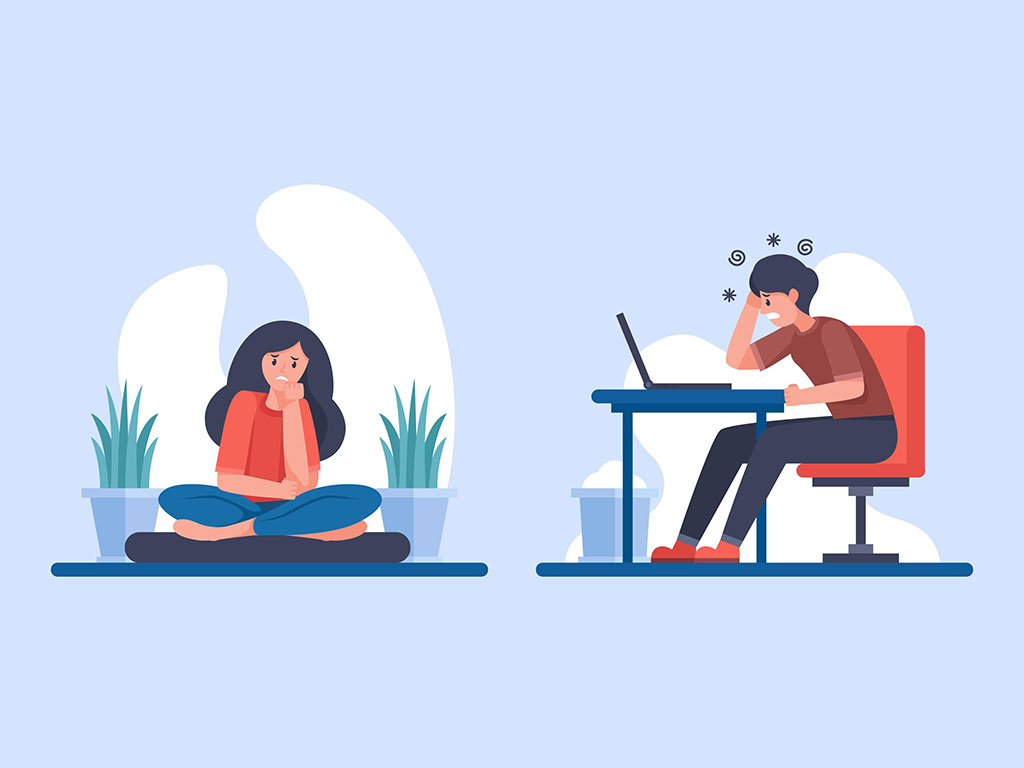
Quiet Quitting and Burnout Insights
Quiet Quitting! What can we make out of it? Are you quitting your job silently? No, not all. In today’s fast-paced, digital world, where employees are burdened with much more than they can deliver, the term “Quiet Quitting” assumes a lot of significance.
Most of us would be familiar with the term, burnout. In simple terms, quiet quitting and burnout are interlinked, with the fear of burning out leading to quiet quitting from employees.
With too much to achieve in a short period, employees are at risk of emotional exhaustion at work.
This article serves as an eye-opener with more facts.
In simple terms, quiet quitting has a lot to do with doing only what much which has been asked of you without going the extra mile. It is a clear sign of mental exhaustion, which has been caused due to overworking and requires you to slow down and take it easy to avoid a complete burnout.
Gone are those days when employees would strive to travel the extra mile, aspiring for something more in return. But despite technology taking over in today’s world, its excessive use is causing burnouts that further lead to
- Acute fatigue
- Reduced productivity
- Detachment from routine work
- Anxiety
- Loss of focus
- Severe mental health issues
When employees feel that they are burning out, quiet quitting becomes an effort to save energy and preserve themselves rather than a performance issue. Instead of going against the system, people prefer to quietly disengage and finish the day.
How do you address the issue of burning out? The best way to do that is to reassess your workload from time to time. Give yourself small targets for the day, that are trying to finish off your assignments in one go. This can save you from mental exhaustion.
Quiet Quitting is not an attempt to have a laid-back approach at work, but it is a sure effort to avoid more severe health issues due to burnout. Mental exhaustion is not visible, but employees can feel it for sure. Hence, you will do well to recognise the warning signs and act quickly. How to begin? Visit our distinguished counselors at MaargaMindcare for a complete understanding of work-life balance and mental health. With a wealth of experience and expertise, the medical team has displayed great composure, patience, and ability to counter burnout due to mental exhaustion in successfully treating over 1000 relevant cases.
Hence, meet the best to achieve the best results!
Frequently Asked Questions
Q. Are Quiet Quitting and burnout related?
A. Quiet quitting is a response to avoid burnout caused by mental exhaustion due to excessive working.
Q. Is Quiet Quitting the only solution to prevent burnout?
A. You can avoid getting burnt out if you can carefully plan and prioritise your work schedule without allowing yourself to be overworked.
Q. What can I understand by work-life balance?
A. Work-life balance is an effort to distribute your workload in such a way that you can devote a sufficient amount of time to your family at home.
Q. How do I know that I am about to burn out?
A. You will feel extremely tired physically and mentally. You will find it difficult to focus on work due to a lack of motivation.
Q. Is Quiet Quitting about being lazy at work?
A. Not really. Quiet Quitting means taking a short break from being fully involved in work to regain your physical and mental energy. It’s more about pausing for a while to rest and recharge, not avoiding work completely


Social Media Sharing